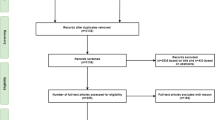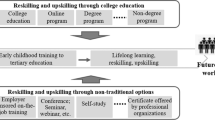Abstract
The presented study deals with the definition of the Industry 4.0 phenomenon, which generally refers to the so-called Fourth Industrial Revolution. In the framework of this analysis, the interpretation of this term is examined in strategic documents (from the government, experts, representatives of businessmen and employees) and in the professional literature (expert interpretation of the term). For the purpose of defining the Industry 4.0 concept, a simplified scheme is created which divides it into descriptive and normative definitions. The description of “what is” includes a retrospective on previous industrial revolutions and the definition of possible areas of automation. Conversely, the normative description of “how it should be” works with the sustainability of competition in the global space, while providing guidance on how to prepare society for this (r)evolution. These preparations, which include subsidies to companies, education reforms, planning and reform of the welfare state, automation as a process of excluding an individual from the manufacturing process and cost savings, will lead to the creation of a new society, we argue.
Similar content being viewed by others
Notes
Basic terminology for Corporate Finance within Industry 4.0, as well as analysis of an impact of the Artificial Intelligence in that area, was introduced for the first time in Polak et al., 2018. The authors discuss the corporate treasury management move to e-BAM, e-billing, e-procurement, future e-services, common enterprise-wide XML standard, and “follow-the-sun” cash management/cash pooling solutions.
Further Reading
Azizi, A. 2018. Applications of artificial intelligence techniques in industry 4.0. New York, NY: Springer Berlin Heidelberg, 2018. ISBN 978-981-13-2639-4.
Bartodziej, Christoph J. 2016. The concept industry 4.0. New York: Springer Berlin Heidelberg.
Bogoviz, V. Springer: Studies in System, Decision and Control 169, pp. 11–19.
Bogoviz, V. Springer: Studies in System, Decision and Control 169, pp. 3–10.
Bostrom, Nick. 2014. Superintelligence: paths, dangers, strategies. Oxford: Oxford University Press.
Brynjolfsson, Erik and Andrew Mcafee. 2014. The second machine age: work, progress, and prosperity in a time of brilliant technologies. New York: W.W. Norton & Company.
Castel, Robert. 2002. From Manual Workers to Wage Laborers: Transformation of the Social Question. New Jersey: Transaction Publishers.
Floridi, Luciano. 2014. The 4th revolution: how the infosphere is reshaping human reality. Oxford: Oxford University Press.
Giddens, Anthony. 1991. Modernity and Self-identity: Self and Society in the Late Modern Age. Cambridge: Polity Press.
Gladden, Matthew E. 2019. Who Will Be the Members of Society 5.0? Towards an Anthropology of Technologically Posthumanized Future Societies. Social Sciences 8(5): 1–39
Kroh, Michael. 2016. A Socio-economic Context of the “Fourth industrial Revolution”. Education 7 (14): 10–13.
Manicas, Peter. 1998. A Realist social science. In: Archer, Margaret Scotford (ed.). Critical realism: essential readings. New York: Routledge.
Polak, Petr, Christof Nelischer, Haochen Guo, and David C. Robertson. 2020. “Intelligent” finance and treasury management: what we can expect. AI & SOCIETY, 35 (3): 715–726.
Polak, Petr, Francois Masquelier, and Grzegorz Michalski. 2018. Towards treasury 4.0 / The evolving role of corporate treasury management for 2020. Management: Journal of Contemporary Management Issues, 23(2): 189–197.
Rakowski, Roman. 2018. Naturalizace a dialektika kritické teorie. In Naturalizace filosofie v minulosti a současnosti, Edited by Kramoliš, Oldřich. Ostrava: Ostravská univerzita, pp. 199-213.
Roblek, Vasja, Maja Mesko, and Alojz Krapez. 2016. A Complex View of Industry 4.0. SAGE OPEN 6 (2): 1-11. [online]. Available from: https://journals.sagepub.com/doi/full/10.1177/2158244016653987 [cit. 27 May 2019].
Sennett, Richard. 1998. Corrosion of Character: The Personal Consequences of Work in the New Capitalism. New York: W.W. Norton and Co.
Vacek, Jiří. 2017. On the Road: From Industry 4.0 to Society 4.0. Trendy v podnikání 7(4): 43. [online]. Available from: http://search.ebscohost.com/login.aspx?direct=true&db=edsdoj&an=edsdoj.14df0ae79ed24c5ca09be909c623a01e&scope=site [cit. 27 May 2019].
Funding
The paper was realized in the frame of the projects (Grant TA ČR Éta, no. TL01000299) “Vývoj teoreticko aplikačních rámců pro sociální změnu v realitě transformace průmyslu.” Financial support was received from the Technology Agency of the Czech Republic.
Author information
Authors and Affiliations
Corresponding author
Ethics declarations
Conflict of Interest
The authors declare no conflict of interest.
Additional information
Publisher’s Note
Springer Nature remains neutral with regard to jurisdictional claims in published maps and institutional affiliations.
Rights and permissions
About this article
Cite this article
Kowalikova, P., Polak, P. & Rakowski, R. The Challenges of Defining the Term “Industry 4.0”. Soc 57, 631–636 (2020). https://doi.org/10.1007/s12115-020-00555-7
Published:
Issue Date:
DOI: https://doi.org/10.1007/s12115-020-00555-7




